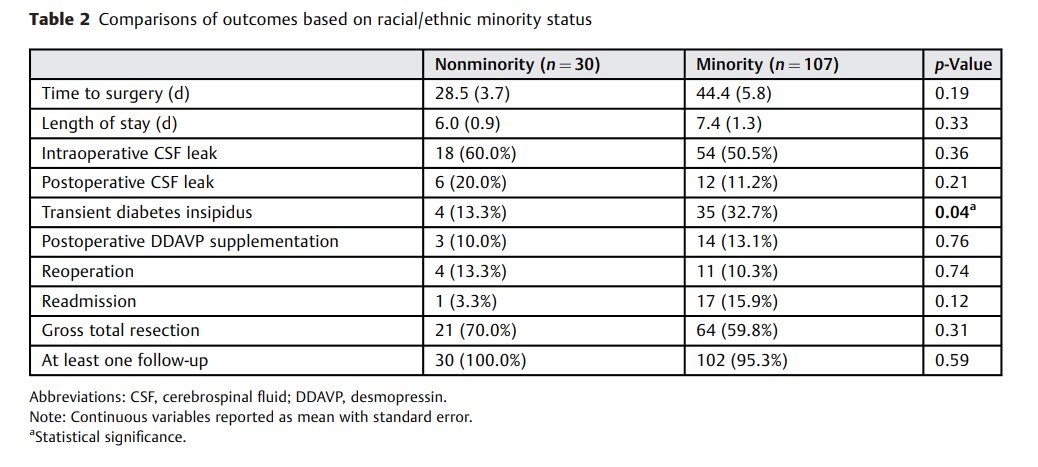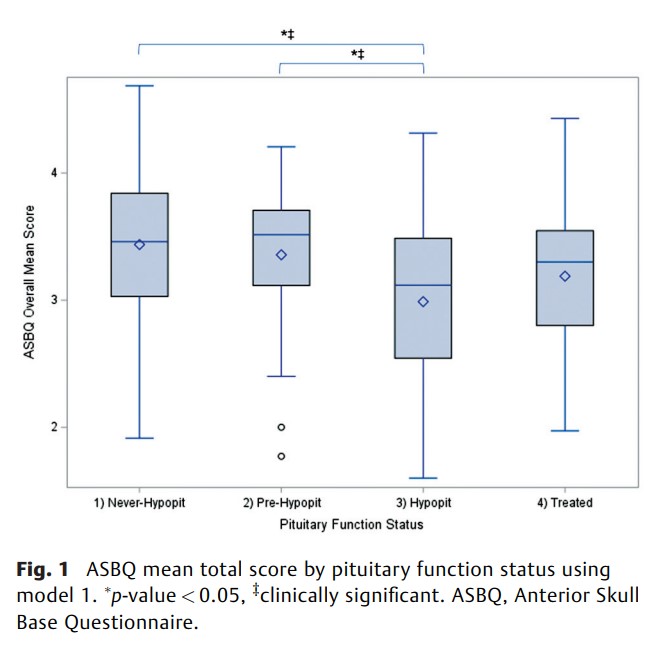
Highlighted article from
Journal of Neurological Surgery Part B: Skull Base
Original Article
Gordon et al.
Gordon et al evaluated the impact of health disparities for patients undergoing transsphenoidal pituitary tumor resection within the NYU health system. The system is notable for providing care for both a private and public health care facility. Significant socioeconomic differences were noted between the two institutions. Public hospital patients more often required emergency surgery, developed diabetes insipidus, and underwent emergency surgery. The authors conclude that identifying these differences is essential for addressing care in their patients.

Original Article
Assessing Quality of Life among Radiation-Induced Hypopituitary Patients
Ryder et al.
Ryder and colleagues investigated the impact of radiation-induced hypopituitarism on quality of life in skull base patients. Patients who underwent surgery for anterior skull base tumor resection and radiation were assessed with a validated Anterior Skull Base Questionnaire. Patients with hypopituitarism had significantly lower quality of life. Hormone therapy replacement in patients with hypopituitarism had significant improvement in quality of life, especially in the vitality domain. The study underscores the necessity of evaluating pituitary status within this patient population.

